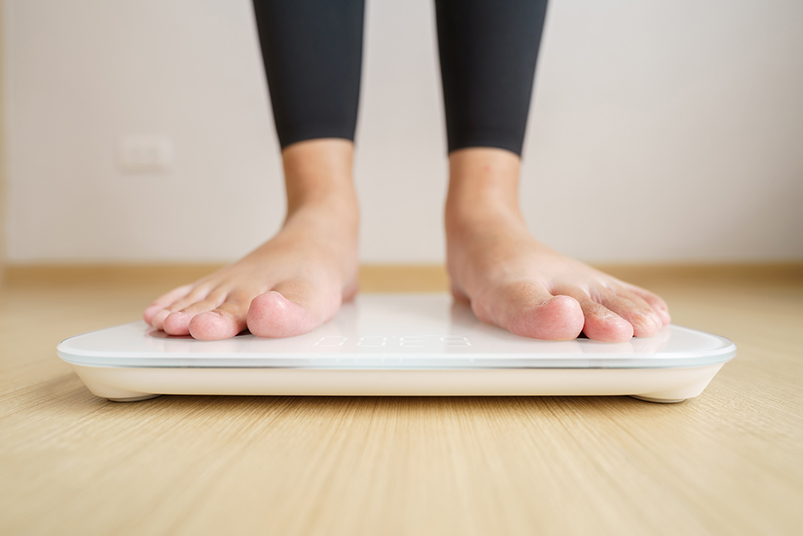5 signs you might need weight loss revision surgery

Receiving a gastric bypass or some other kind of weight-loss surgery can be a life-changing – and life-saving – procedure, but some patients find that they require additional procedures to help them along their road to recovery. This is commonly referred to as weight loss revision surgery, and it is there for patients whose first bariatric procedure either did not lead to significant weight loss or resulted in gastrointestinal issues that are complicating other areas of their life and wellbeing. If you find yourself in either category, you might want to consider weight loss revision surgery. Here are the five signs that the procedure is right for you.
1. Chronic acid reflux
Before your bariatric procedure, acid reflux was probably a common and uncomfortable experience, and it should be significantly reduced in the weeks and months following your procedure. Heartburn alone is not a sign that you need another surgery, but if you are still experiencing frequent or increased acid reflux that is not reduced or controlled by your diet or over-the-counter medications like Prilosec, then you might need to get revision surgery to help normalize your condition in conjunction with the healthy lifestyle changes recommended by your doctor.
2. Re-gaining weight
It is not uncommon for bariatric patients to regain some pounds after surgery. We call it “rebound” weight, and it can happen for multiple reasons, usually in the form of regressive lifestyle choices. Remember, gastric bypass surgery is not a substitute for healthy living – the purpose is to help you in your weight-loss journey. If you start to avoid exercise, those lost pounds will eventually find their way back. Also, breaking away from your bariatric diet can reverse the effect of your surgery, allowing you to take in larger portions and more calories.
However, if you are sticking to your diet, and getting the right amount of exercise and still seeing an increase in weight, then you are possibly dealing with complications from your initial surgery. Your doctor will work closely with you to determine the specific cause of your weight gain and make the appropriate treatment recommendation.
3. Nausea and vomiting
Experiencing nausea and occasional vomiting immediately after bariatric surgery is normal, especially as you introduce new foods to your diet and your body gets used to receiving fewer calories. In addition to adapting to a new lifestyle, gastric surgery requires you to adapt to a major change in your body, and the process can be a little, well, messy. If you are still feeling queasy months after surgery, though, it could be a sign that you need revision surgery – especially if you are being consistent with your diet and exercise. Vomiting is also a major cause for concern and might indicate a more serious complication with your Lap Band. If vomiting persists for more than 48 hours, contact your physician’s office for recommendations on how to seek help immediately.
4. Unmet weight loss goals
After bariatric surgery, your doctor will target a weight loss goal for you to meet, but if it has been an extended amount of time and you have yet to meet the mark, you could be looking at the need for revision surgery to correct the issue. Now, the caveat from before applies here as well: If your unmet weight loss goals are due to poor lifestyle choices (poor diet, no exercise), then it is your responsibility to correct things. In other words, revision surgery is not the answer. That said, patients do sometimes experience something known as a weight loss plateau, which happens as your body learns to manage the decreased calorie intake. These plateaus are normal and temporary – they are usually corrected by making small changes in your diet and lifestyle. If the plateau periods are frequent, last for an extended amount of time, and do not respond to your behaviors, then revision surgery could be right for you.
5. Complications from a gastric surgery
This is the least common but most serious sign that you need revision surgery. Most patients do not experience any issues after receiving a bariatric procedure and go on to live the life they desire, but there is always some amount of risk involved when it comes to weight loss surgery. There could be a situation where your lap band slips out of place or become loose, which not only impacts your ability to lose weight but can create digestive problems. You might also feel sick or have pain frequently. Remember to not panic. Most of the time, these situations are just a sign that your body is adjusting to its new normal. But if you feel like there is a larger problem at hand, communicate with your physician immediately, especially if you experience severe stomach pain or trouble swallowing.

Are You a Candidate for Weight Loss Surgery?
Take our 60 second assessment and find out if you are a candidate for weight loss surgery


